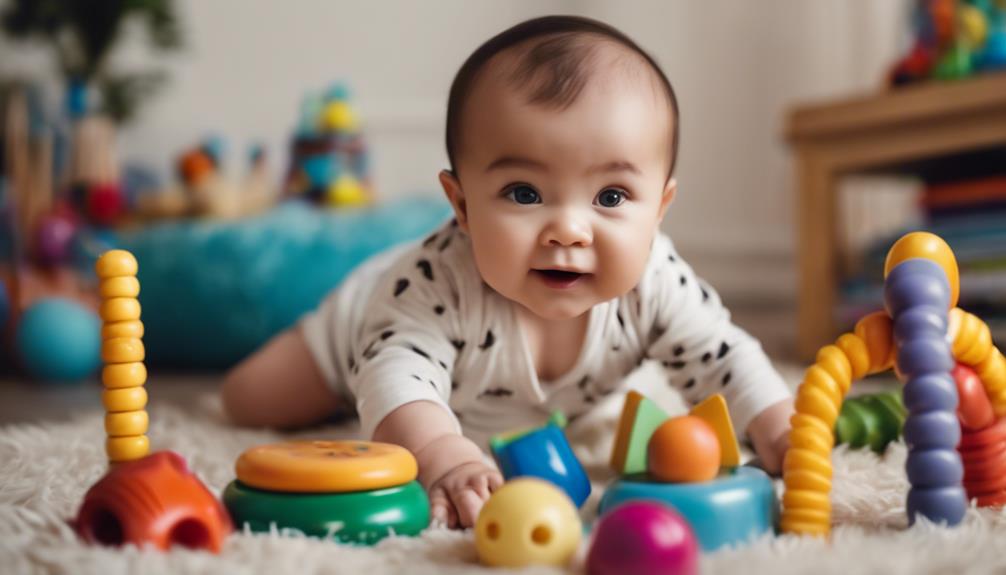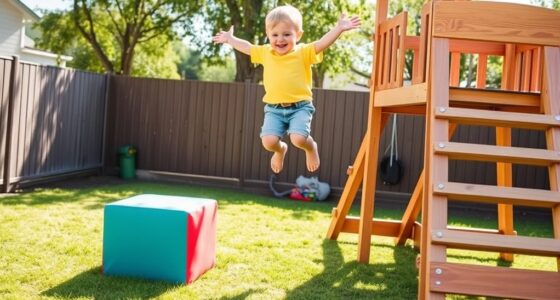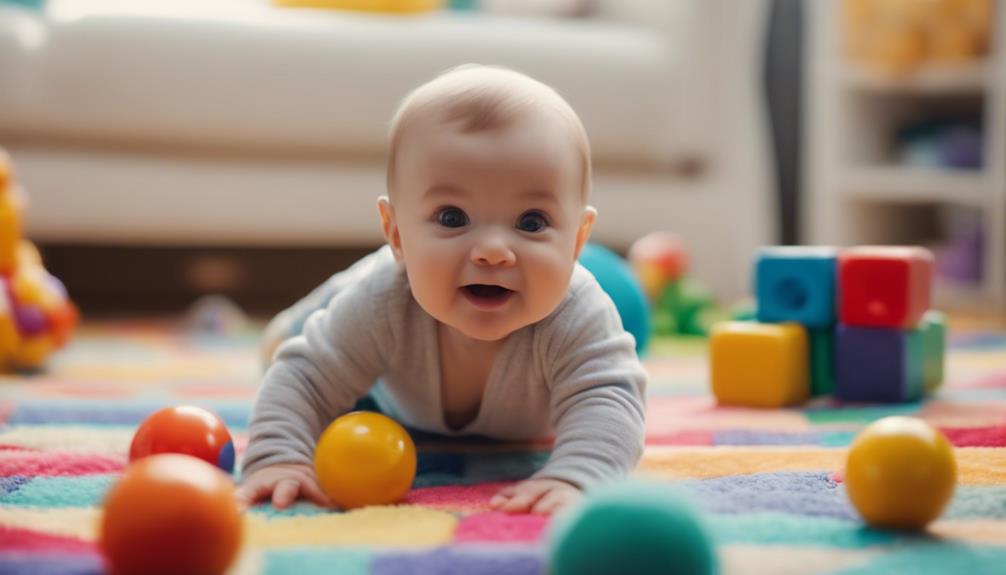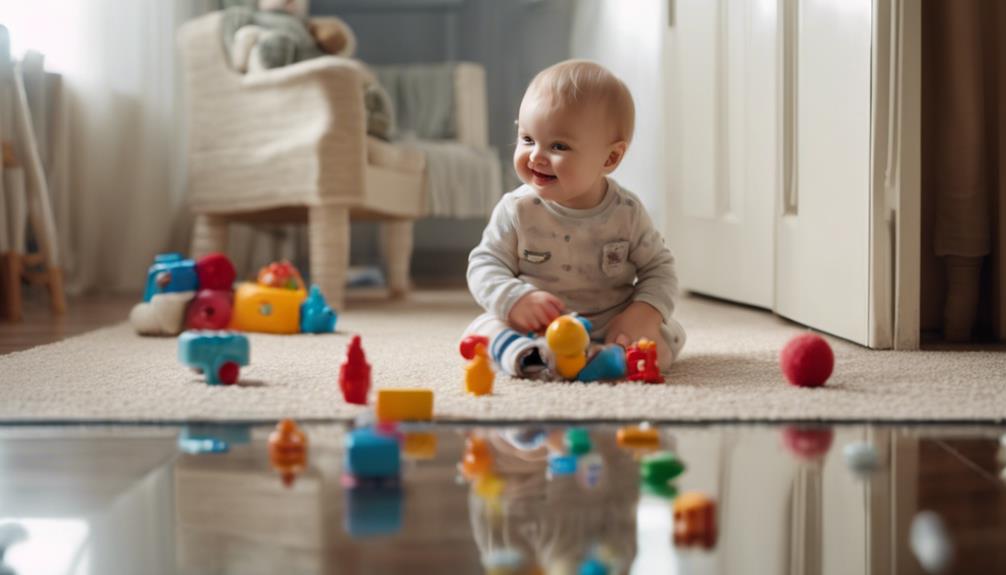To support your baby’s cognitive and emotional development effectively, it is important to focus on early childhood brain development, emotional and social growth, practical parenting tips, rich experiences, and loving relationships. Recognizing the importance of responsive caregiving, stimulating environments, and incorporating rich sensory experiences can positively impact your baby’s overall well-being. By following practical advice such as observing your baby’s cues, creating safe exploration areas, and participating in activities that encourage language skills and creativity, you can help foster holistic development. Additionally, nurturing loving relationships through affectionate interactions, building strong bonds, and providing a secure environment are crucial for your baby’s overall growth and development.
Key Takeaways
- Understand the importance of early brain development and neural connections.
- Foster emotional and social growth through nurturing and active parenting.
- Implement practical tips for creating stimulating environments and observing baby's cues.
- Provide rich sensory experiences like sensory play, music, and reading.
- Build loving relationships with responsive interactions and regular physical contact.
Early Childhood Brain Development
Understanding the importance of early childhood brain development is key to nurturing your baby's mind for future success. During the early years, a baby's brain undergoes rapid growth and development, forming essential neural connections that shape their learning, behavior, and overall mental health. Parents play a significant role in this process by providing responsive caregiving and creating stimulating environments that support healthy brain development.
One approach that aligns with these principles is the Montessori method, which emphasizes the significance of the environment in a child's development. In a Montessori setting, babies are encouraged to explore and learn at their own pace, fostering independence and a love for learning from an early age.
This approach, coupled with parental understanding and nurture, sets a strong foundation for a child's future cognitive and emotional well-being.
Emotional and Social Growth

Parents play a vital role in shaping their baby's emotional and social growth through engaging in practical activities outlined in the book. Nurturing your infant's emotional and social development is key to their overall well-being.
The book emphasizes fostering growth in these areas as a priority for parents, offering a scientific approach that's also accessible to both new and experienced parents.
Early experiences have a significant impact on how infants develop emotionally and socially, making it essential for parents to actively participate in their child's growth.
Practical Parenting Tips
Implementing practical parenting tips from 'The Montessori Baby' can greatly enhance your baby's development and overall well-being. The author of this guide emphasizes the importance of creating a prepared environment that supports your baby's growth.
Through careful observation, you can better understand your baby's cues and needs. Setting up yes spaces at home is a practical suggestion from the book to encourage safe exploration and movement. These spaces allow your baby to move freely and engage with their surroundings.
The guide also offers tips on activities that promote language development and help foster a sense of security in your baby. By following these practical tips, you can raise a secure and confident baby who's ready to explore the world independently.
Creating Rich Experiences
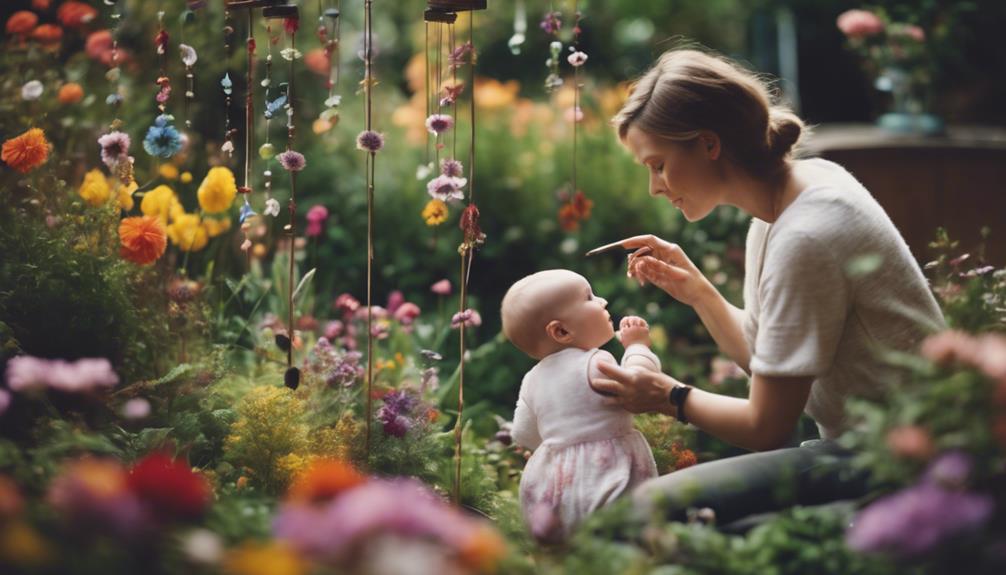
Enhance your baby's development and well-being by creating rich experiences that engage all their senses.
Through activities like sensory play, outdoor exploration, music, art, and reading together, you can stimulate brain development, language skills, creativity, and emotional well-being.
These diverse interactions help your baby learn about the world and build essential connections in their brain. Providing such rich experiences aligns with the Montessori method of education, emphasizing the importance of engaging all senses to support brain development.
Fostering Loving Relationships
To nurture your baby's mind effectively, establishing loving relationships is key for their emotional and social growth. Fostering these relationships involves engaging in responsive interactions filled with affection.
This type of connection helps build a strong bond between you and your baby, creating a nurturing and secure environment that promotes trust and healthy brain development.
Regular physical contact, like cuddling and holding your baby, plays a significant role in supporting their emotional well-being.
Frequently Asked Questions
How Hard Is It to Raise a Newborn?
Raising a newborn can be incredibly challenging. You'll face round-the-clock care, sleep deprivation, and a new routine. Meeting their needs for feeding, changing, and soothing will test you, but support and self-care can help.
How to Still Have a Life With a Baby?
You can absolutely have a life with a baby! Make time for self-care, utilize tools like baby carriers and schedules, engage in baby classes, and communicate openly with your support network. Balancing is key!
What Age Is the Montessori Baby For?
The Montessori Baby is suitable for parents of infants and toddlers from birth to around three years old. It focuses on nurturing and understanding babies from the very beginning of their lives, offering practical guidance on implementing Montessori principles.
What Is a Montessori Baby?
You're describing a Montessori baby, a child nurtured in an environment that values independence, observation, and respect. Montessori babies explore at their own pace in spaces that encourage movement, language, and confidence.
Conclusion
To wrap up, remember to constantly stimulate your baby's mind with enriching experiences and nurturing relationships.
Imagine their brain as a little garden that needs constant care and attention to bloom into a beautiful, flourishing oasis of knowledge and emotional intelligence.
So, go forth and be the gardener of your baby's mind, cultivating a bright future filled with endless possibilities.


